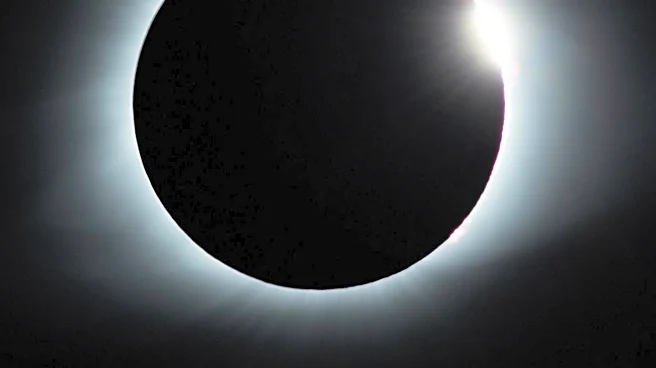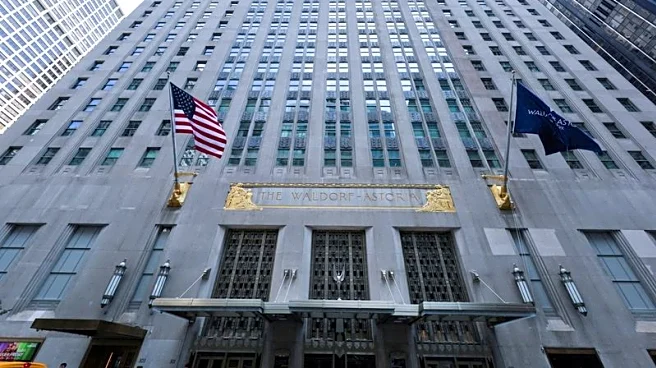What's Happening?
The 2027 total solar eclipse, set to occur on August 2, is generating significant interest due to its record-breaking duration of totality. This eclipse, dubbed the 'eclipse of the century,' will last for over six minutes, making it the longest on land in modern history. The best viewing locations are in North Africa and parts of Spain, where expert-led tours are quickly filling up. The eclipse's extended duration is attributed to a rare cosmic alignment, with Earth at its farthest point from the Sun and the Moon at its closest to Earth.
Why It's Important?
The 2027 solar eclipse presents a unique opportunity for both amateur and professional astronomers to observe a rare celestial event. The extended totality offers a prolonged period for scientific observations and public engagement. Economically, the event is expected to boost tourism in regions along the eclipse path, as travelers seek to experience the phenomenon. This influx of visitors could benefit local economies and promote cultural exchange.
What's Next?
As the eclipse date approaches, tour operators and local governments in the path of totality will likely ramp up preparations to accommodate the expected surge in visitors. This includes enhancing infrastructure, ensuring safety measures, and providing educational resources about the eclipse. Additionally, scientific communities may organize collaborative research efforts to maximize the observational opportunities presented by the eclipse.










